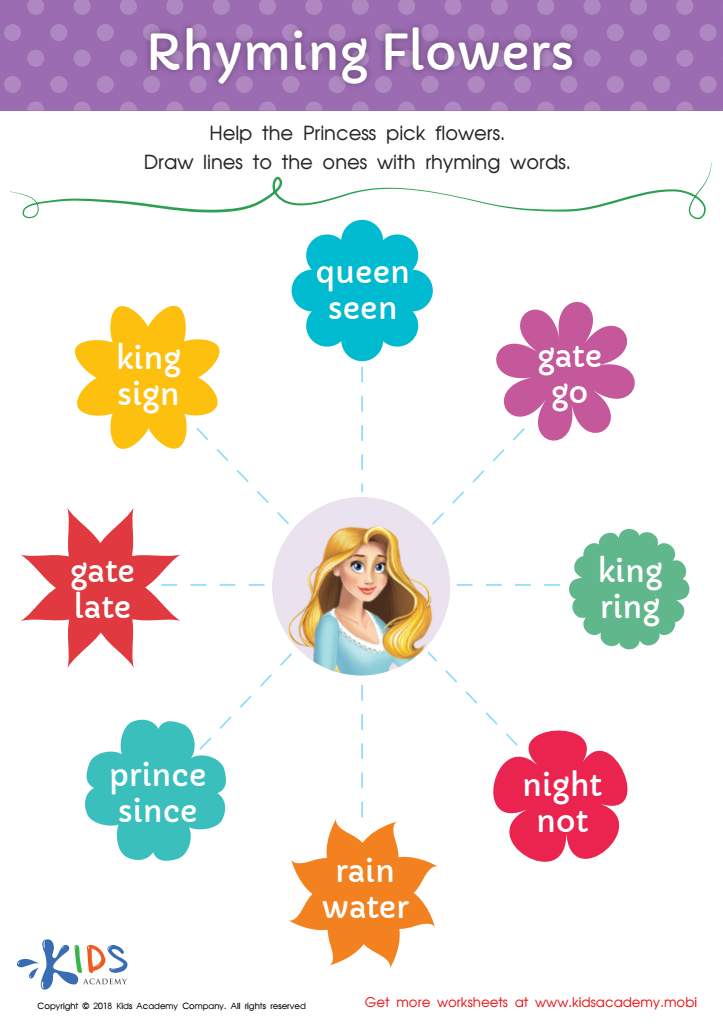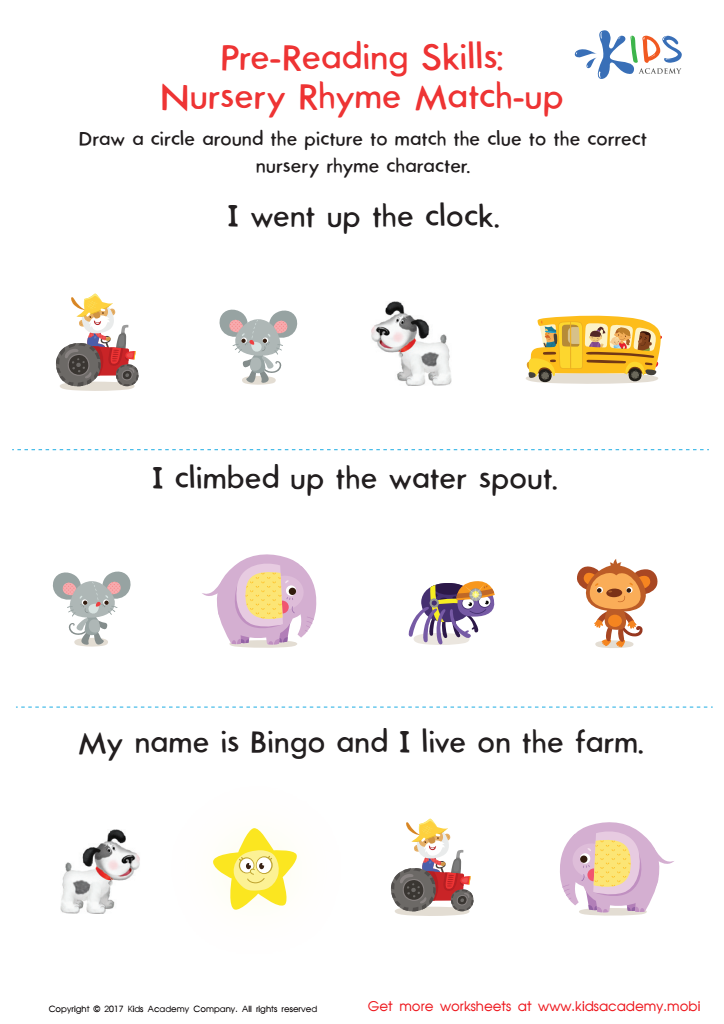Rhyme recognition Reading Comprehension Worksheets for Ages 4-6
3 filtered results
-
From - To
Explore our Rhyme Recognition Reading Comprehension Worksheets designed for ages 4-6! These engaging and interactive worksheets help young learners develop essential literacy skills through fun activities centered around rhyming words. By identifying and matching rhymes, children enhance their reading comprehension while enjoying colorful illustrations and playful themes. Perfect for classroom use or home learning, these worksheets foster critical thinking, listening skills, and vocabulary expansion. Build a strong reading foundation for your child and watch them gain confidence as they discover the joy of language through rhyme. Visit our site to access these valuable resources and support your child's educational journey today!


Baa Baa Black Sheep Printable


Rhyming Flowers Worksheet


Nursery Rhyme Match–Up Worksheet
Rhyme recognition is a crucial component of early literacy development for children aged 4-6. Understanding and recognizing rhymes enhances phonemic awareness, a foundational skill for reading. When children can identify and produce rhyming words, they develop their ability to hear, manipulate, and work with the sounds in language. This auditory skill promotes decoding abilities, enabling them to connect sounds with letters, paving the way to fluent reading.
Moreover, engaging with rhymes fosters vocabulary growth and comprehension skills. Rhymes often include playful language, enriching children's experiences with words and encouraging curiosity. They spark interest in stories and texts, helping children relate new concepts to their experiences through rhythm and repetition. For parents and teachers, incorporating rhyming games, songs, and storytelling creates a fun, interactive learning environment.
By focusing on rhyme recognition, educators and caregivers not only support children’s emerging literacy skills but also build their confidence in expressing themselves and engaging with books. As research shows, strong early literacy practices correlate with long-term educational success. Thus, recognizing the importance of rhyme is not just a beneficial activity; it is foundational for shaping young learners’ future academic journeys.
 Assign to My Students
Assign to My Students









.jpg)











